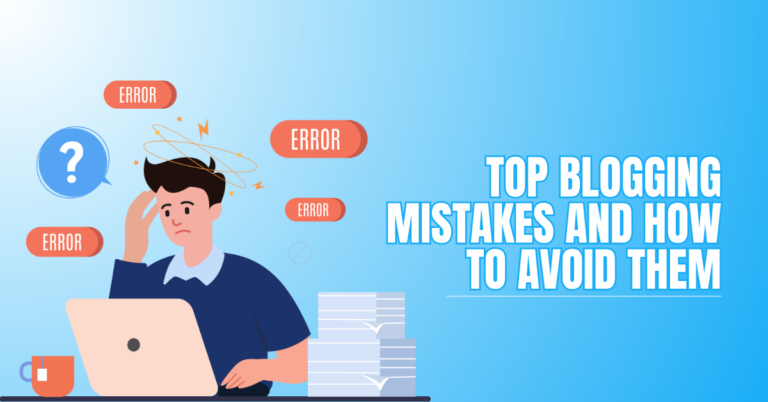How Do Blogs Work – Definition And Guide
How Do Blogs Work – Definition And Guide
We often get questions from readers about what a blog is and how it differs from a website.
If you are thinking about starting a blog or website, understanding these terms should help you achieve your goals.
This beginner's guide will explain what a blog is and the difference between a blog and a website. We will also discuss usage scenarios and their benefits with real-world examples.
Want to Start Making Money Online?
Try My #1 Recommendation Program!
What Is A Blog?
A blog is a type of website where content is presented in reverse chronological order (new content first). Blog content is often referred to as entries or “blog posts.
Blogs are usually run by an individual or a small group and present information in a conversational style. However, there are now many corporate blogs that create informationally or thought leadership-style content.
Blog Post Comments Section
A typical blog post has a comments section where users can reply to the post.
History Of Blogs
Blogs evolved from online diaries and journals in the mid-1990s. At that time, Internet users were already running personal web pages and regularly updating and publishing their personal lives, thoughts, and social commentary.
The term “weblog” was first used in the late 90s, followed by “we blog,” and finally “blog.
With this increase in web pages, several tools began to appear that allowed users to easily create online journals and personal blogs. These tools helped popularize blogging and made the technology available to non-technical users.
In 1999, the popular blogging site Blogger.com appeared, later acquired by Google in February 2003.
That same year, in May 2003, WordPress released its first version as a blogging platform.
Today, WordPress is the world's most popular blogging platform, powering over 43% of all websites on the Internet.
What is the difference between a blog and a website?
A blog is a type of website. The only difference between a blog and other types of websites is that blogs are updated regularly with new content and appear in reverse chronological order (new blog posts first).
A typical website is static, with content organized in pages, and is not updated frequently. Blogs, on the other hand, are dynamic and are typically updated more frequently. Some bloggers publish multiple new posts per day.
Blogs can be part of a larger website. Often, companies have a blog section where they regularly create content to inform and educate their customers.
Want to Find Out How To Start Your Home-Based Business?
Try My #1 Recommendation Platform!
You can use WordPress to create both a website and a blog. That's why many business owners use WordPress to build their small business websites.
Simply put, every blog can be a website or part of a website. However, not every website can be called a blog.
For example, WPBeginner is both a blog and a website. The website has other content published in a non-blog format, such as our Glossary, About Us, and Contact Us pages.
Non-Blog Content On A Blog Site
Now let's look at another example. This time, it is a website called Awesome Motive. It is a business website and belongs to the WPBeginner management company.
Awesome Motive
This site does not have a blog or sequential content. Pages are used to organize and present information about the business, and a contact form is added to gather user feedback.
A blog also has articles organized using categories and tags. On the other hand, websites use pages to organize and display content.
Blogs vs Websites – Which Is Better?
Beginners may wonder whether it is better to start a blog or publish a website. Honestly, the answer to this question really depends on what your goals are.
Many small businesses worldwide have traditional websites consisting only of pages and do not have blogs. These smaller websites are often created to create an informational web presence for a company, organization, or individual.
On the other hand, more and more companies realize the potential of blogs in their overall marketing strategy. Business owners are adding a separate blog section to their traditional websites and using it to drive more traffic from search engines.
This is because blogs have been proven to improve search engine optimization (SEO).
Blogs also have an RSS feed feature that allows users to keep up to date with your latest posts. Whenever a new post is published, the RSS feed is automatically updated. Smart marketers often integrate RSS feeds with email newsletters and web push notifications to notify users about recent posts, product announcements, and more.
Take OptinMonster, for example, it is lead generation software, and its website has a traditional sales page showcasing its products and features.
OptinMonster's Website And Blog
They also have an informational blog that teaches users how to improve conversions and get more leads. This helps them cover industry keywords to get free traffic from search engines and increase sales.
Whether you are a business, non-profit, or professional, adding your blog to your website will help you attract your target audience, grow your email list, and sell your products.
What Is The Difference Between A Blog Post And A Page?
WordPress is the most popular blogging platform and a powerful content management system. By default, it comes with two content types: posts and pages. Beginners often confuse the two.
Blog posts are timely content and therefore appear in reverse chronological order on the blog page (newest to oldest).
Static pages are “one-time” content, such as about pages, contact pages, product or service landing pages, and home pages.
For more information, see our beginner's guide on the difference between “posts” and “pages.
Pages are typically used to create the structure and layout of a website. Blogs can also have pages (see our list of important pages every blog should have).
Why Do People Blog? What Are The Benefits Of Blogging?
People have different motivations for blogging. Many use blogging as an alternative to keeping a diary or journal. Blogging sites provide a place to share creativity and ideas with a wider audience.
Top brands and companies are creating blogs to educate customers, share news, and reach a wider audience. Blogs have become an important part of the online marketing strategy for many companies.
Following are just a few of the benefits of blogging
- You can organize your thoughts and ideas
- Showcase your skills, creativity, and talent
- Become an authority in your industry
- You can interact online with like-minded people
- Many bloggers make money from their blogs using a variety of monetization techniques.
- Businesses can use blogs to attract more potential customers to their websites.
- Nonprofits can use blogs to build awareness, run social media campaigns, and influence public opinion.
What Are Examples Of Great Blogs?
Blogs are huge. Millions of individuals and businesses around the world have blogs. In other words, there are blogs on every topic you can think of.
There is no shortage of bloggers today, many of whom owe their success to a variety of people. These people started out as bloggers and became a sensation that others picked up on.
Are You Tired Of Scams?
Try The Most-Trusted Training Platform To Make Money Online!
There are many different genres of blogs, but the most popular among them is “inspirational” and “motivational” blogs. The writer's attitudes and perspectives on life have inspired others and provided insight into other topics such as productivity, social media, entrepreneurship and self-development.
What Is The Difference Between A Blog And A Website?
A blog is a type of website. The only difference is that blogs have frequently updated content, while Web sites tend to be more static and consist of a single page.
A blog can be a stand-alone site or part of a larger site. Early versions of blogs were used primarily as personal online diaries. However, as the ability of blogs to attract customers became apparent, companies began to exploit their potential.
Today, companies are beginning to use blogs to keep their customers informed about events and products as part of a search engine optimization strategy and to engage users with engaging stories.
Growth Marketing Pro is both a website and a blog. Content is written in blog format and updated regularly, but we also have static pages, such as an “About Us” page. The blog was created using WordPress.
What's Different In Terms Of Content?
In terms of content, websites have “pages.” Think of them as pages or sections of a brochure. Web pages can be divided into different categories depending on their content.
For example, one page might contain a home page (general information about the organization). Another page might list and describe your products and services. Another page might contain contact information or provide an email contact form.
On the other hand, a “post” is reading material that can consist of one or a combination of the following media: text articles, images (such as photo journals and infographics), videos, podcasts and social media feeds.
WordPress conveniently organizes the two types of content that can be published into “posts” and “pages.” The “posts” are published to date and written in the blog feed. ‘Pages,' on the other hand, sit in the background unless you link to them in a prominent place on your site, such as the navigation bar.
Why Blog?
Blogs are a great way to get your ideas out to a wider audience.
For businesses, it's a great way to get news and updates to their customers. Many people use blogs as a lifestyle and a means of self-expression. Blogs often offer opportunities for readers to comment on articles and for authors to respond to articles, making them a social medium for many people. One of the biggest benefits of blogging, personal and business, is that it is a platform for readers to learn and participate.
Blogging not only attracts an audience and builds community but can also bring in serious money.
Use a keyword research tool like GrowthBar to search for keywords and look at their monthly search volume to see what topics to write about on your blog.
How To Make Money From Your Blog
Many people think of blogs as personal diaries or hobby sites. While many people blog for fun, some use their blogs to make money.
This blog began as a passion project when we realized that the companies whose tools we were promoting (just because we liked them) were paying us.
Display Ads
The most common way to display ads on a blog is by using Google Adsense. Like other advertising programs, Adsense pays you every time a reader clicks on an ad placed on your blog.
Affiliates
Affiliate marketing is another way to generate income: affiliate marketing sites such as Amazon and eBay pay you a commission every time an item is purchased due to an ad promotion on your blog. We have become affiliates of the marketing software tools they sell by signing up for their affiliate network or by contacting them and establishing a relationship.
Another way to generate income from blogging is through memberships and subscriptions. You charge your members a fee by providing members-only content. This method is much more complicated and works best with very niche products (products whose information is very hard to find).
Here are some of the best inspirational blogs and the people who run them that continue to motivate all.
1. Meet Gary Vaynerchuk @Garyvaynerchuk.Com
He is a very boisterous and charismatic New Yorker who has made a name for himself online as the crazy, outgoing host of Wine Library TV, a video blog in which he obsessively talks about everything related to wine. Through his online video blog (aka Vlog), he has built his wine business from a $3 million-a-year wine retailer to a $60 million-a-year wine wholesaler.
Gary Vaynerchuk has built a multi-million dollar empire associated with his brand. He is a two-time best-selling author and co-founder of Vayner Media, a very large digital marketing agency that works with some of the biggest brands in the world.
He has been written about in The Wall Street Journal, GQ and Time Magazine, and has appeared on Late Night with Conan O'Brien and The Ellen DeGeneres Show.
His inspirational blogs detail social media, the latest trends in business and sometimes inspirational blogs about life. He is incredibly in-depth on these issues, and his straightforward instructions help keep you focused on what's important.
2. Leon@Lifehack.Org
Leon's career began at Red Hat, where he worked as a software engineer, and his work ethic quickly led him to become the youngest manager in the company, overseeing the global team.
He soon realized, however, that hard work alone wasn't enough to handle the increasingly complex demands of the job. He soon began looking for ways to move beyond his “fixed capabilities” and invested heavily in productivity and management research.
By the age of 20, he had completed more than 150 projects. He then realized he could use that knowledge to help people stuck somewhere in the world. So he quit his job at Red Hat and dedicated his time to share this information through Lifehack.org.
3. SEOmoz.org
Rand Fishkin started blogging about SEO (search engine optimization) in 2004 when he dropped out of university and worked for his family's website development company. He also provided SEO consulting services to several small clients.
Since then, SEOmoz has moved away from consulting and focused solely on creating great SEO software and supporting a large community of educational resources about the search engine industry.
The company is rumoured to make millions of dollars monthly from its software and subscription services. The company also raised $18 million in 2012, which it used to acquire other companies. Rand continues to run the company vigorously and contributes to the main blog from time to time.
Understanding SEO is important for aspiring bloggers, and Rand's occasional blog posts are helpful. Moreover, it is one of the best motivational blogs for those trying to understand SEO and apply it to their site.
4. Meet Pat Flynn @Smartpassiveincome.Com
Pat is one of the most inspiring bloggers in the world. After losing his job a few years into his career, he was forced to find money to support his growing family. He created a website called SmartPassiveIncome.com to track the progress of various Web sites and money-making projects online.
What started as a little blog for inspiration has turned into one of the best blogs in the world for making money.
Since then, his openness and honesty have helped him gain many fans and readers. Today, Pat still shares his monthly earnings that have inspired countless people.
Pat now attends industry conferences, hosts a regular podcast for his readers and spends as much time as possible with his family. On average, Pat earns about $50,000 a month.
5. Brian@Copyblogger.Com
Brian Clark is the founder of Copyblogger. He started this inspiring blog in 2006 as a resource for copywriters, content marketers and entrepreneurs looking to become “content king” in any field. Since then, the blog has become an authority on creating “killer” content for the Internet.
With more than 100,000 subscribers, Brian has used his audience to create Copyblogger Media and launch several subsidiary companies. These software companies include Scribe, Synthesis, Premise and StudioPress.
The genius of his business model is that his loyal readers love him and line up to buy the marketing software his company produces. Brian is still active in the daily work of Copyblogger.
6. Andrew@Thedishdaily.Com
Andrew started his inspirational blog, The Daily Dish, in late 2000; by mid-2003, he was getting about 300,000 unique monthly visits.
In 2013, Sullivan made a big change and decided to leave his other blogging jobs (formerly TIME, The Atlantic and The Daily Beast) to work on The Daily Dish full-time. On launch day, the blog reportedly generated more than $330,000 in recurring revenue, charging readers an average of $20 per month.
The Daily Dish is one of the best inspirational blogs because its main focus is positive news.
7. Harvey@TMZ.Com
Harvey is an American lawyer, legal analyst, blogger and celebrity reporter. His website TMZ is the leading authority on celebrity gossip.
Harvey often hosts his own television show or guest star on CNN, FOX and other networks. He has successfully used the popularity of his blog to build his brand.
8. Meet Michael Arrington (Techcrunch.Com)
Michael is one of my favorite bloggers. He started as an M&A lawyer working on technology deals in California. After realizing his passion for the startup world, he started a tech blog, TechCrunch.com, where he presents and reviews the best up-and-coming tech companies and entrepreneurs worldwide.
Want To Learn How To Create Your Own Website And Online Business?
Try My #1 Recommendation Training And Hosting Platform!
TechCrunch became one of the most-read motivational blogs in the tech industry, leading to its $30 million acquisition by AOL. Michael used the proceeds from the sale to become an angel investor and start his own investment fund, CrunchFund, which invests in startups. Today, Arlington is still considered a driving force in the Valley.
9. Meet Tim Ferris @Fourhourworkweek.Com/Blog
Tim is a self-proclaimed personal best friend who has gained a lot of popularity online with his blog posts. He is the author of “The 4-Hour Workweek,” which quickly became a bestseller and is still used by many. He has also published two other books that have become bestsellers.
He is a frequent speaker in many countries around the world. He also promotes ideas of “lifestyle design” and “unconventional living.
Tim is credited with popularizing the “Internet lifestyle” – the ability of entrepreneurs to work from their laptops anywhere in the world. Perhaps it has something to do with the inspiring blog he created.
10. Meeting Timothy Sykes @Timothysykes.Com
Tim started his blog to document how he turned his $12,000 Bar Mitzvah money into more than $1 million. Needless to say, that journey has become one of his best and most inspiring blogs. Since then, he has become famous online as an authority on securities trading.
His blog is visited by hundreds of thousands of people, which has allowed him to start companies like Profit.ly, which teaches other traders trading strategies.
He can often be seen speaking on television on ABC, CNN, FOX and CNBC about the stock market.
11. Who Is Darren Laws (Problogger.Net)
Darren is another blogger you should know. He started blogging as a hobby. He blogged about his passion for the Olympics and photography. From there, he founded Problogger, a site that helps other bloggers.
Now Darren is a full-time blogger and makes money from advertising deals, affiliate programs, AdSense and e-book sales.
Darren has achieved considerable online notoriety and was listed as a Forbes Internet celebrity in 2007. He lives with his family in Melbourne, Australia, and still makes a living from his blog.
Conclusion
There are many other great blogs on a variety of topics as well. Take a look at some of the most popular types of blogs to get ideas.
I trust you enjoyed this article on How Do Blogs Work – Definition And Guide. Would you please stay tuned for more articles to come?
Take care!
JeannetteZ
Want to Learn How to Build Your Own Home-Based Online Business & Start Making Money Online From Your Comfortable Couch?
Try Wealthy Affiliate!
Your Opinion Is Important To Me
Thoughts? Ideas? Questions? I would love to hear from you. Please leave me your questions, experiences, remarks, and suggestions on How Do Blogs Work – Definition And Guide in the comments below. You can also contact me by email at Jeannette@WorkFromAnywhereInTheWorld.com.
Disclosure
This post may contain affiliate links. I earn from qualifying purchases as an Amazon Associate and other affiliate programs. Read my full affiliate disclosure.
You may also enjoy the following articles:
Wealthy Affiliate Review – Scam or Legit? The Truth Exposed
How To Get Listed In Search Engines
















